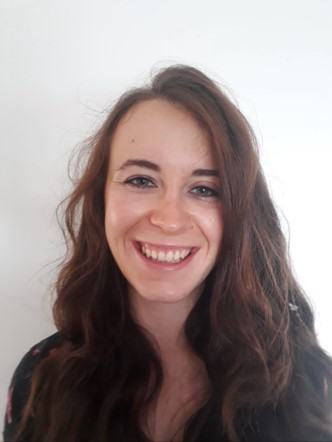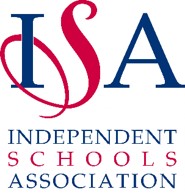The Revision Census
Understanding what it takes to put effective revision technique into ACTION
The Revision Census team presented key findings at the British Education Research Association (BERA) Autumn Conference 2023, the pre-eminent conference for education research and academics in the UK.
We have included a copy of our findings poster below (click for larger version):
Would you like to get involved?
FREE student voice and national benchmarking on your learners’ study habits
Now in its fourth record-breaking year, the Revision Census is a major annual research project to find out how students ACTUALLY go about their revision and independent study.
We want to find out whether “best practice” study techniques like retrieval practice and spacing are becoming “common practice”. How smart are YOUR students being in their study habits?
We also want to understand what’s holding students back from studying smarter, so we can empower schools to accelerate the uptake of strategies that help students achieve their potential, more easily.
The next round of the survey is open to all UK schools to participate.
Come join us! The more the merrier.
It’s completely free, and a very valuable way to learn about your students’ revision habits, so you can support them in studying more effectively and maximising their exam performance.
I personally have used the findings from the census a huge amount in my teaching and have shared it with the school a lot.
This really is a fantastic report and is so useful. We have already started using it to reinforce and prioritise revision techniques within the school.
Basic scoop: what exactly IS the Revision Census?
We now know that good study habits aren’t just about the number of hours students spend studying.
Decades of research from cognitive psychology have proven that the quality and style of independent work has a substantial impact on learning outcomes.
This includes the use of metacognition techniques and evidence-based learning strategies such as spacing or retrieval practice. A rich scientific literature tells us that when students use these techniques well, we can often expect performance improvements of a whole grade boundary or more.
But to what extent are students actually making use of these magic strategies?
That’s what we’re here to find out!
At its heart, the Revision Census sets out to do 3 things:
- Raise awareness of the opportunity to raise standards through better study strategy. (Or where standards are already high in the most academically elite schools, how to maintain excellence while improving work / life balance and student wellbeing.)
- Empower school leaders and teachers to improve attainment at their school by better understanding how to embed good study techniques. What messages do YOUR students most need to hear?
- Measure the progress in the uptake of effective strategies in individual schools and nationally. And where we can, provide (yet more) evidence that this shift results in higher exam grades.
Previous phases (2020, 2022 and 2023) surveyed nearly 50,000 students between them, making the Revision Census (as far as we know, and we’ve looked into it a lot!) the largest piece of education research of its kind in history.
This all sounds really interesting! Can I get my school involved?
Absolutely! We’d love to hear from you.
We make it as simple as possible to participate: simply forward the survey link to your students, they can fill it out on any device (PC, laptop, chromebook, tablet, smartphone). Takes about 10 minutes.
All participating schools receive a data / debrief report breaking down how your students responded to key questions, along with actionable recommendations for higher exam grades this year (and beyond!).
Student voice
Better understand how your students are approaching revision and independent study, both their behaviours (what they’re doing) and their attitudes (what they’re feeling about it all).
Higher grades
We highlight any opportunities for “quick wins” – what to focus on first (or next) to start (or continue) raising exam prep standards (= higher grades!) at your school.
Points of pride
We’ll show you the areas you already excel vs peer schools. Handy “bragging rights”: some schools in previous years have used these stats as part of their marketing efforts and parent communications.
All this, and it won’t even cost you anything: there is no charge for your school to participate.
What’s not to love?
FAQs about getting your school involved
How do the practicalities work in terms of actually getting students to fill in the survey?
Each participating school receives a special survey link.
Simply forward the survey link to your students, they can fill it out on any device (PC, laptop, chromebook, tablet, smartphone). It will take them around 10 minutes.
Most schools do this as part of the school day, often as part of form / tutor group time, or even PS(H)E or similar sessions.
This is a great way to maximise engagement with the survey, but it is also possible to set this as an independent exercise to be done in students’ own time (like a homework assignment).
What will I receive as a school for taking part?
Two things!
- A short report on your students’ revision habits, full of gorgeous easy-to-read charts and takeaways, explaining in simple terms what your students are up to in their independent study at the moment. We’ll highlight any “quick win” opportunities to level up we spot, as well as any areas you’re already shining in.
- A recommendations pack at national level, based on our aggregate analysis of all participating schools.
If it’s your first time participating, we can give you some samples of what we’ve sent in previous years, just ask.
Are students anonymous? What about school-level stats - will they be published?
We take the privacy of students and you as an institution very seriously.
Students complete the survey anonymously, so we will never be able to identify living individuals based on their responses in the survey.
We will analyse aggregate data at school level and report this back to you in a private data & insights debrief report specific to your school.
You have total control over what you do with your school-level results from there. If you wish to distribute any of the results or findings more widely to your staff, students (or even publish good news to your school website – it’s happened before!), that is entirely up to you.
What if I WANT to be able to see how individual students responded - can I do that?
Many participating schools requested info on how individual students responded in the survey, either to offer individual-level support, and / or to match up to internally-held data on context (e.g. pupil premium), other survey data (e.g. PASS), or academic performance.
We’re happy to support such requests again in 2023. It does add time and complexity at our end, so as in previous years, we do need to ask for a modest contribution to cover our additional analysis time (£250).
This is on an opt-in basis.
If you don’t opt in for this, be reassured that a. you’ll still get a data debrief at aggregate school level, and b. there are absolutely no charges whatsoever for you to participate in the research.
How will you publish your findings / conclusions?
At time of writing (January 2023) we are preparing an abstract for submission to major education research conferences and academic journals with key findings from the 2020 and 2022 phases of the Revision Census.
As we gain a clearer picture of prescriptions for boosting the uptake of effective study strategies in schools, we will also seek to broadcast and publicise more widely our recommendations more widely, beyond academic platforms, so that they can reach and help as many schools as possible.
What resources do you provide for running the survey – letters to parents, instructions for teachers supervising the survey?
We provide optional resources to help you run the survey, including:
- A script for teachers / supervisors to read out prior to starting the survey, if you are running it in a classroom type environment. This explains the purposes of the exercise and data collection considerations in a consistent way to students before they enter the survey.
- An optional letter for parents about the research: because we are collecting anonymous data, it is not necessary to gather parental consent for this research. But some schools find it helpful to keep parents informed about the school’s participation in the Research Census. We provide a template letter if you wish to use it.
That normally covers all bases, but if you require further support or resources, please ask, the research team will be glad to support.
What schools is this open to?
We are happy to work with all UK secondary schools teaching some or all of Years 7 – 13.
We have worked with all sorts of schools in the past, including:
- Comprehensive schools and non-selective academies, from those delivering academic excellence to those serving highly deprived communities struggling with low aspirations in inner city, rural or coastal settings.
- Grammar schools, including some of the highest-performing in the country.
- Independent schools, from academically elite public schools with internationally-recognised brand names, through to nurturing non-selective independent environments serving families in their area.
The language in the default survey is geared towards schools in England taking GCSEs or A-Levels / BTECs. But we are happy to work with Welsh or Scottish schools too, please contact us to discuss the best way to do this.
Which year groups should take part?
We welcome (and encourage!) responses from all year groups from Year 7 through to Year 13.
Not all schools have all years represented, of course – that’s fine.
We have worked in the past with many schools without a sixth form, or sixth-form only colleges, and are always glad to welcome any school to participate regardless of which year groups you teach.
We do encourage you to run the survey with as many of your Y7-13 year groups as possible, however.
It’s very helpful for us to see the evolution of attitudes and behaviours across a student’s secondary school career, and we tailor the questions slightly to make sure they are relevant to all age groups.
However, it is ultimately up to participating schools which year groups participate in the survey. To put it simply, we’ll take what we get 🙂
Who's the best person to lead on this in my school?
Our most common stakeholder at a school is the senior academic lead, e.g. Assistant / Deputy Head for Academics / Teaching & Learning / Progress, or Director of Studies.
We do also work with Heads directly, or sometimes with other staff members, especially where they lead on study skills or professional development programmes within your school.
Or if your school is routinely involved in research (e.g. as a Research School or otherwise), your usual research lead would be a natural overseer for the project.
Do you offer adaptations / accessibility provisions SEND, ESL etc?
Every year, we face the difficult choice about providing the survey in alternative languages for non-English speakers, and similarly, providing accessible versions for SEND.
We can only offer limited support in these areas without making the project vastly more expensive to run – which would in turn mean having to charge schools to participate, which would be impossible for many schools.
We continue to explore ways to maximise accessibility, but for now, we look to schools for your practical support in making the survey accessible to as many of your students as possible.
For example, the survey questions and answer options can be read out loud to a student, and their answers recorded, either by a peer (e.g. a translator assigned to an ESL student) or by their SEND support or a TA.
Reassure us on GDPR and all that?
This is a GDPR compliant project (of course).
Our privacy policy is circulated to all participating schools, and is also available on request.
But to summarise the most salient point from the policy: we will not collect or store Personal Data because the survey is anonymous.
We undertake robust checks to ensure that individuals are unable to be identified on the basis of the information they provide in the survey.
We also require informed consent from participants before storing and analysing the responses they provide in the survey as part of our research efforts.
What do you mean it's free?! How's that possible? Who's funding it?
Never look a gift horse in the mouth, eh?
The Census is run by Exam Study Expert, a tiny little family-owned UK company with (at time of writing) about 3 employees.
Our mission is to help students study smarter, not harder.
While we do offer paid services (such as revision workshops for schools, or private coaching for students), we also put huge time and effort into our outreach and research initiatives in pursuit of achieving that mission to reach and help as many students as possible.
Think of us like a social enterprise if you will: while we earn our living from this work, we are also incredible driven by our mission to have as big an impact as possible, to improve study skills in whatever ways we can.
The main reason for running the Census is because it’s an incredibly powerful way to achieve this mission.
Schools that work with us on the Census tend to end up placing more emphasis on supporting students with effective study strategy, and do so in more targeted and therefore impactful ways, as a result of the insights from the Census.
On an individual student level, even the simple practice of reflecting on their revision habits for 10 minutes or so in the survey is a potentially very helpful exercise for students to go through.
And zooming out to national level and beyond, we hope that by publishing findings from the Census, we can raise awareness of the opportunity to improve students’ study strategies, and also and empower educators to better understand just how to go about bringing about that change in their school.
What about research ethics?
To tackle this, think about a student’s participation in the survey – there are two distinct elements:
- Spending some time answering the questions in the survey about how you study and revise (your answers haven’t been stored or seen by anyone yet)
- Submitting your answers to the research team, so your data / responses can be analysed as part of our research purposes.
On Part (1), we leave it to school’s discretion to make the activity mandatory or on an opt-in basis.
Most schools we work with choose to make completing the survey a compulsory activity as part of the school day, seeing the exercise of spending 10 minutes reflecting on how you revise as a valuable exercise for students in its own right.
In terms of Part (2) – whether or not your answers are submitted – we ask for informed consent from each participant.
After answering the questions, students are given the option to choose whether to submit their data for research purposes or not. In other words, we seek informed consent from each student participant to store and use the data they provided, but only after they have reflected on and filled in answers to the questions.
This helps guard against the risk that less engaged, lower-achieving students are further disadvantaged by being under-represented in this important research programme because they simply “couldn’t be bothered” to complete the survey, which has been raised as a potentially very serious problem if the entire exercise was on an optional / opt-in basis.
Meet the team behind the Revision Census
The core research team consists of:
Dr Alix Hibble
Head of Learning & Research at Exam Study Expert
Oxford University PhD, Psychology

William Wadsworth
Exam Study Expert’s Founder & Director of Learning
Cambridge University First Class BA / MA, Psychology

Alix and William are passionate about helping students study smarter
Between them, Alix and William:
- Co-host the award-nominated Exam Study Expert podcast, which together with the sister blog, reach well over one million students every single year (the largest platform on this subject – as far as we know!)
- Have a combined twenty years’ experience teaching students the science of effective study techniques, from 1:1 coaching to delivering revision and study skills workshops at leading schools nationwide
- Have written two highly-rated books: Outsmart Your Exams and Outsmart Your Studies, both Amazon bestsellers in their categories in multiple countries
They are familiar faces in leading schools around the country for staff CPD and student revision workshops.

Featured “how to revise” expert across 5 separate articles to date (example linked here – no paywall)

ISA conference speaker

British Education Research Association – conference speaker

researchED conference speaker
We are also grateful to our academic advisors who have contributed questions to the survey and provided invaluable feedback over the years, in particular:

Prof. Jo Bolaer
Professor of Mathematics Education at the Stanford Graduate School of Education
A regular face on international media, including the New York Times and TIME magazine, Prof. Boaler’s research interests include mathematics teaching and learning, and growth mindset.
She has written 8 popular books for students and educators on evidence-based learning and teaching, and is the founder of the YouCubed movement, which aims to empower teachers of mathematics through sharing the latest research, which reaches an estimated half of all schools in the US.

Prof. Henry Roediger
Principal Investigator at the Washington University Memory Lab
Prof. Roediger is one of the godfathers of the cognitive revolution, with some 600+ published articles to his name which have been cited some 70,000 times between them.
That makes him the 12-th most cited cognitive psychologist in history according to Google Scholar.
He has focused on understanding human memory throughout his career, but over the past couple of decades, has become increasingly focused on applying cognitive psychology to enhance education, producing some of the seminal studies in this field.
Interested in taking part? We’d LOVE to hear from you – get in touch today!

Or drop us an email via the form below:
Follow us on social
Get support, encouragement and tips when you connect with Exam Study Expert on your favourite social spots

